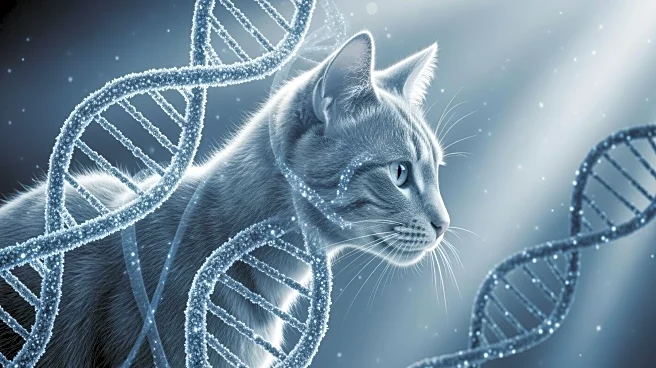Rapid Read • 8 min read
A recent study has investigated the brain structure age gap estimation in patients with Major Depressive Disorder (MDD), focusing on those with and without anhedonia. The research involved 115 subjects, including 72 MDD patients and 43 healthy controls, and utilized machine learning techniques to analyze brain magnetic resonance imaging (MRI) data. The study aimed to understand how psychiatric disorders like MDD might accelerate brain aging. Participants were evaluated using the Diagnostic and Statistical Manual of Mental Disorders, IV Edition (DSM-IV), and the Snaith-Hamilton Pleasure Scale (SHAPS) to assess anhedonia. The study found that MDD patients, particularly those with anhedonia, exhibited altered brain structure age gaps compared to healthy controls. The research highlights the potential of using brain age estimation as a tool to explore the pathophysiology of psychiatric disorders.
AD
This study is significant as it sheds light on the potential accelerated aging of the brain in individuals with psychiatric disorders, particularly MDD. Understanding the brain structure age gap could lead to better diagnostic tools and treatment strategies for mental health conditions. The findings suggest that MDD, especially when accompanied by anhedonia, may contribute to premature brain aging, which could have implications for cognitive decline and overall brain health. This research could influence future studies and clinical practices by emphasizing the importance of addressing anhedonia in MDD patients to potentially mitigate accelerated brain aging.
Future research is needed to validate these findings through larger, multi-center studies. The study's authors suggest that further investigation into the longitudinal effects of anhedonia on brain aging is necessary. Additionally, the development of more advanced machine learning models could enhance the accuracy of brain age estimation, providing deeper insights into the relationship between psychiatric disorders and brain aging. These advancements could lead to improved therapeutic interventions and preventive measures for individuals at risk of accelerated brain aging due to mental health conditions.
The study raises ethical considerations regarding the use of machine learning in psychiatric research, particularly in terms of privacy and data security. As brain imaging and machine learning become more integrated into clinical practice, ensuring the confidentiality and ethical use of patient data will be crucial. Additionally, the cultural and societal implications of labeling individuals with accelerated brain aging due to mental health conditions must be carefully considered to avoid stigmatization.
AD
More Stories You Might Enjoy












